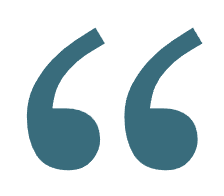The concept of vulnerability and leadership remains a fascinating combination. So what covers it and what is real bull shit? As far as I am concerned, a combination of boardroom guidance, research and logical thinking produces the following answer.
Starting with the bull shit. Vulnerable leadership is not tear-jerking about your deepest feelings and secrets, discussing all your “weaknesses” or sharing every detail about your private life and having endless compassion for non-performing and dysfunctional employees. Vulnerable leadership is about understanding where your strengths and weaknesses lie and being honest about them. Not just against your team, but starting with yourself.
Soft skills
The international research & consulting firm Gallup, states that in as many as 82% of cases, executives do not have the right talents to do their jobs well. Ranging from specific subject matter knowledge to the core qualities of leadership. Leading and managing a team requires, among a number of other talents we won’t cover here, a significant amount of soft skills. An important soft skill is building relationships with your team members from vulnerability.
Safe workplace
This starts with communicating with your team members. Gallup research found that regular face-to-face, telephone or electronic communication, is associated with greater engagement. Especially if the communication is not only about your colleagues’ roles and responsibilities, but also about what is going on in their lives outside of work. Colleagues who feel that their supervisor invests in them as a person are more likely to be engaged.
Greater engagement leads to a productive work environment. A place where people feel safe. Safe enough to experiment, to face challenges, to share information and to support each other. In such a work environment, employees are willing to give their supervisor and their organization the benefit of the doubt. The prerequisite is that the employee feels that he/she is cared about as a human being and not merely as a factor of production.
Trustworthy
And that brings us back to the executive himself. In a previous blog I wrote about the importance of trust, as the foundation of good relationships and cooperation. Trust is made up of four elements that are inextricably linked. Reliability, commitment, genuine interest and professionalism. Regardless of your position, these four elements are prerequisites to being a trustworthy person. What I didn’t describe in that article is that the biggest common denominator for being trustworthy has everything to do with how much you dare to be vulnerable.
Without wanting to fall back on Brené Brown, one of the most read and listened to professors in the field of vulnerability, her description about acting vulnerable is interesting.
‘We like to show the world the best version of ourselves. Weaknesses are there to be hidden. But those who do dare to expose themselves open themselves to real contact,’ says Brown. It’s about having the courage to imperfect be,
self-compassion
to be kind to yourself first and then to others and
authenticity
show it by not pretending to be anything other than you are. If, as a leader, you are willing to embrace and propagate these three elements, you open the door for your employees to also act from vulnerability. Mutual relationships deepen and become resistant to overcome adversity. Vulnerability becomes your strength. With all the profit that entails.
The top combination!
Over twenty-two years ago, I asked the then chairman of AEGON’s board if I could learn from him. I admired the man for his ordinary human behavior. Approachable, open and interested in the person behind the job without boardroom fuss. On the condition that I wrote a letter about what I wanted to learn and why, I was welcome. My first lesson in vulnerability was in black and white. This man in a position that is still special to me, who spoke person to person about learning, experiencing and going for your dream, taught me the principles of vulnerability. He taught me what the path to success meant: asking for help about what I couldn’t yet do, but wanted to learn. Several conversations followed in the years that followed. The biggest lesson was in having the conversation from authentic person to authentic person. Not having to be perfect, but giving what is already there, looking at myself with compassion and daring to ask for help when I needed it. That was the added value of these conversations.
Vulnerability is also your strength. The power to dare to look beyond your ego to what is available. Incidentally, I didn’t realize this until years later. The boost this “simple” lesson has given to my personal development is priceless.
Meaningful conversations
Studies have shown that social interactions benefit our mental and physical health. So why limit this to our personal lives? I find vulnerability and leadership to be a top combination when it comes to really connecting with each other and having meaningful conversations. Those conversations can have to do with both subject matter content and personal interests. And they may also come together in one conversation. So much for the relationship between supervisor and employee. It is about the interpersonal relationship in general.
As far as I’m concerned, Gallup’s percentage of non-functioning executives can be drastically reduced if vulnerability is allowed to take hold. Vulnerable leadership, in my opinion, is about understanding where your strengths and weaknesses lie and being honest about them. Both against your team, and against yourself.
Want to know more about personal leadership? Watch: The Leader in You!



